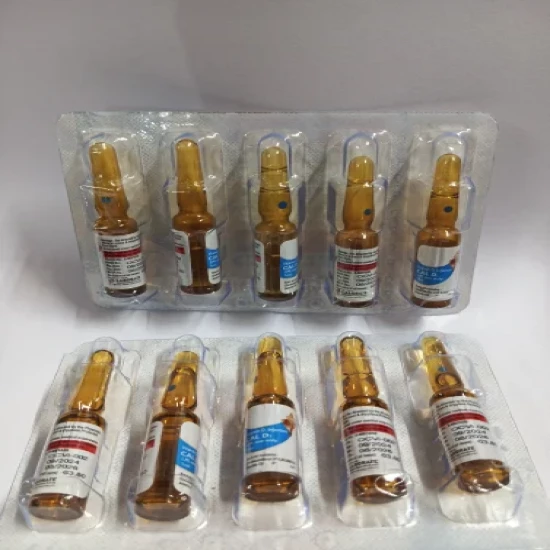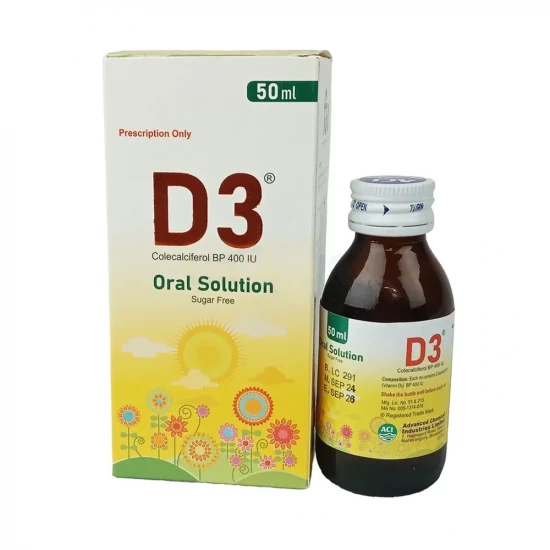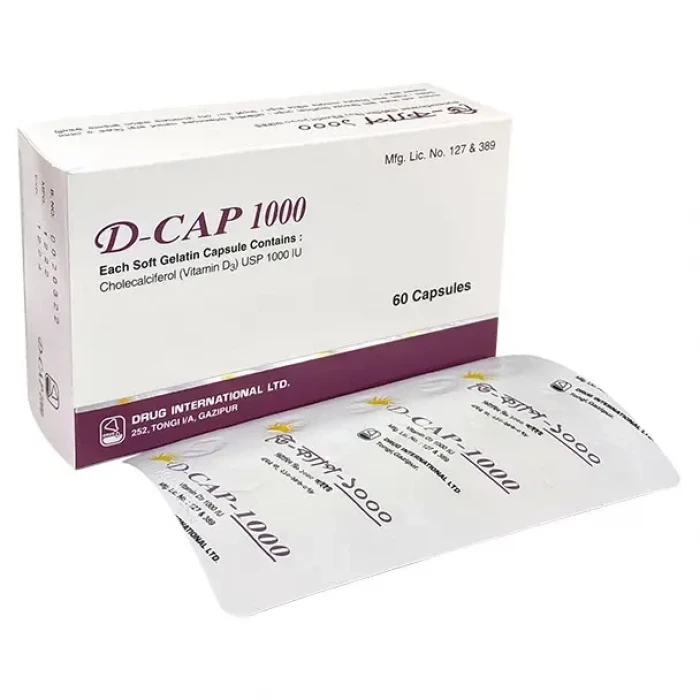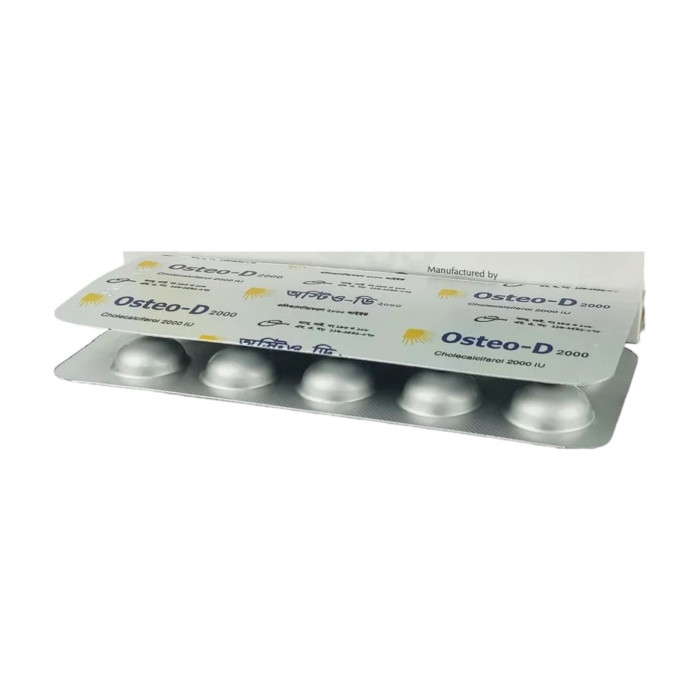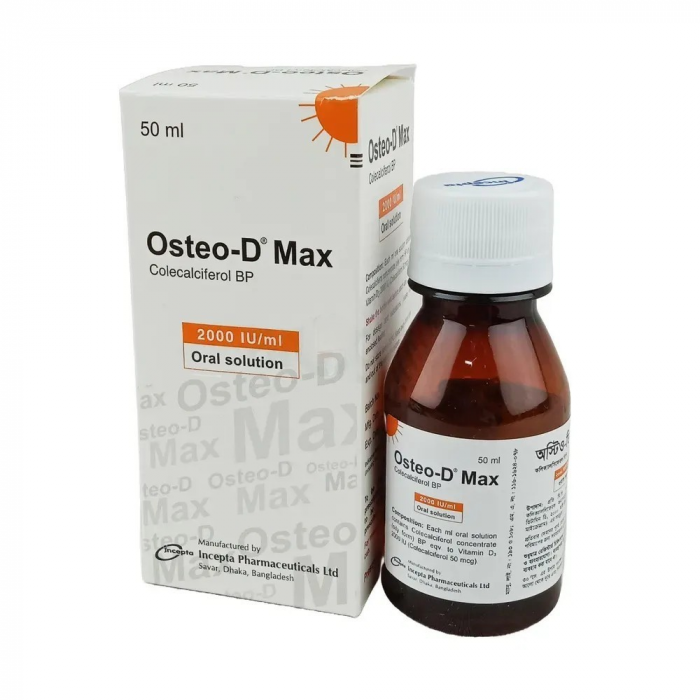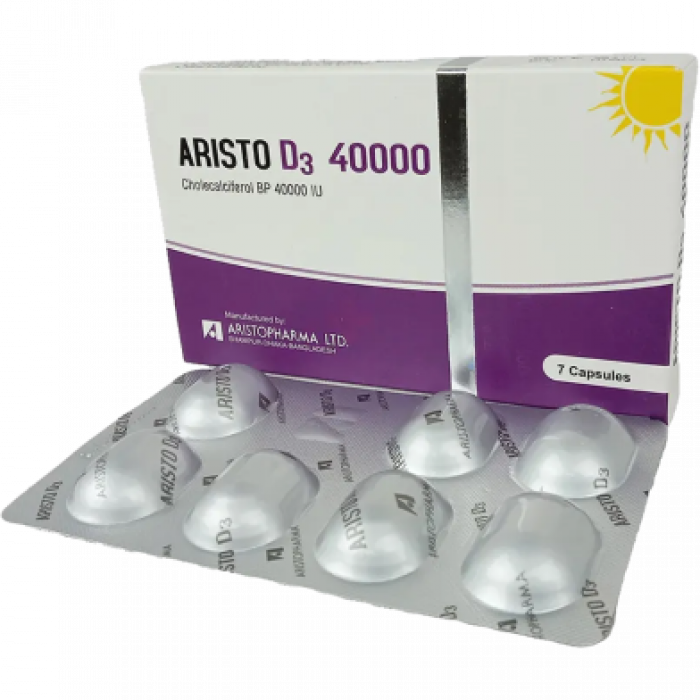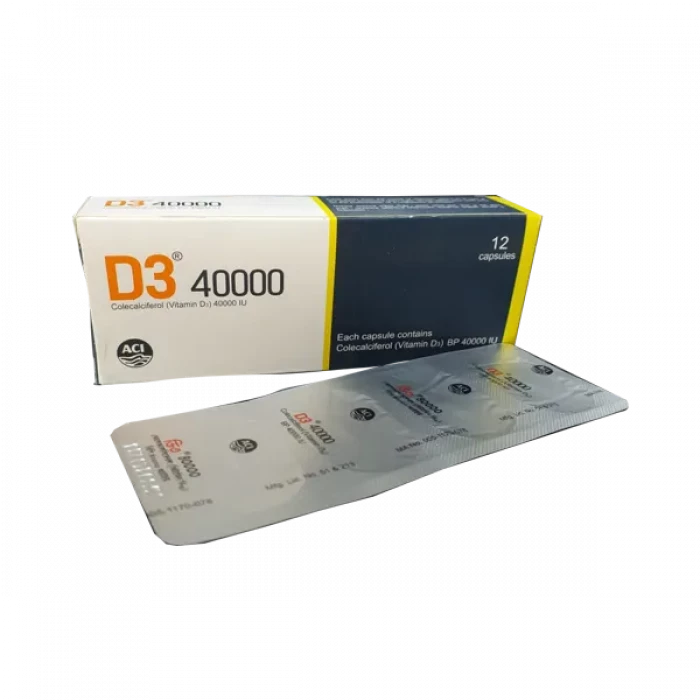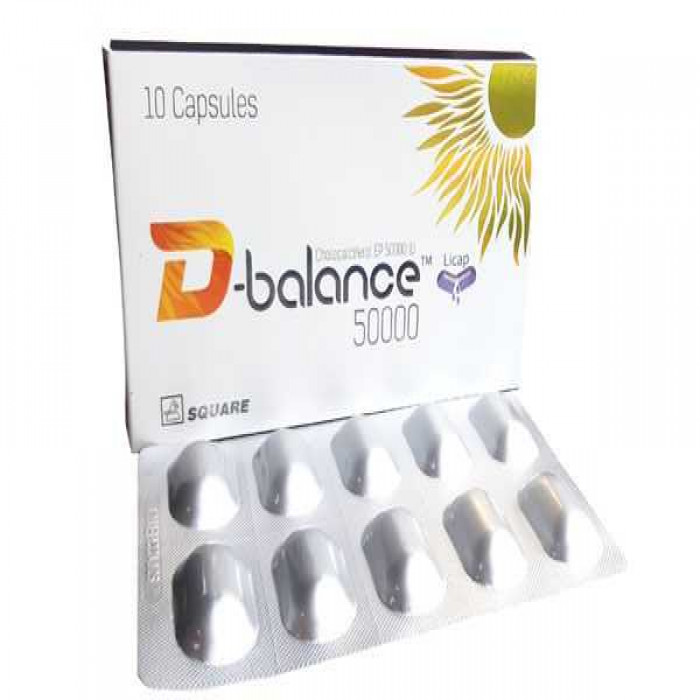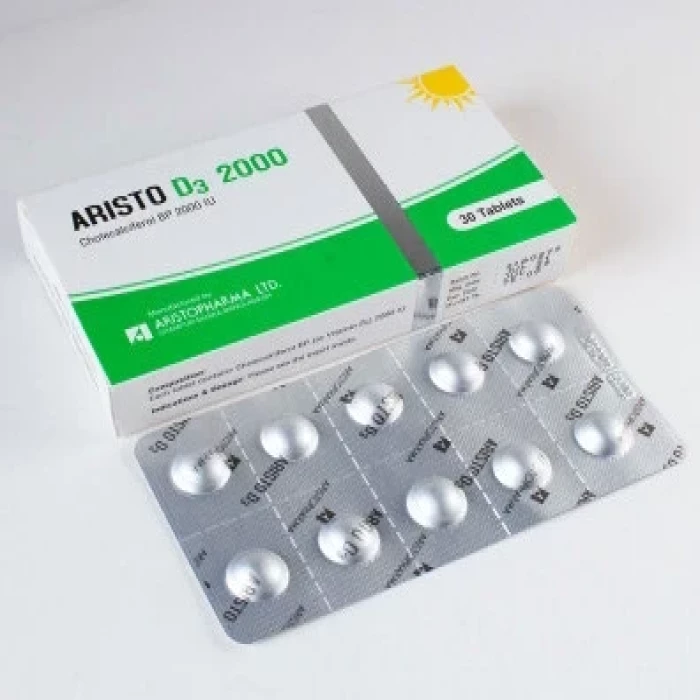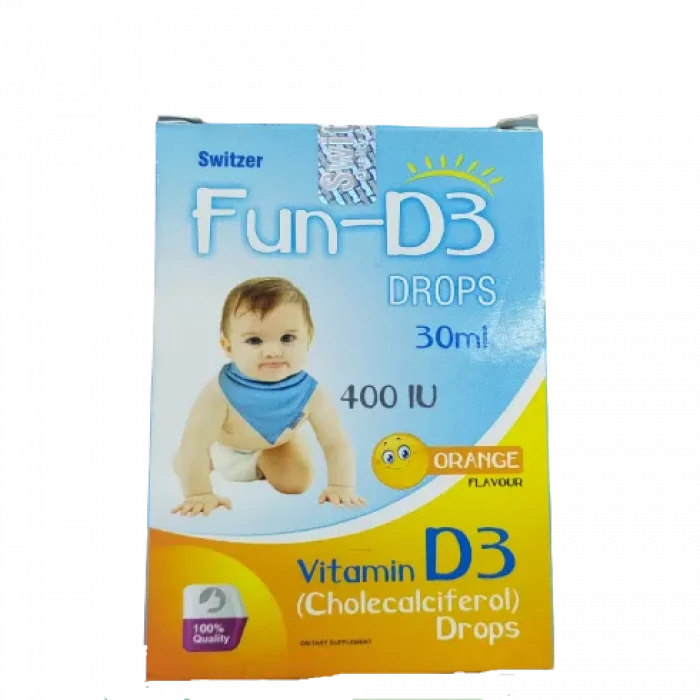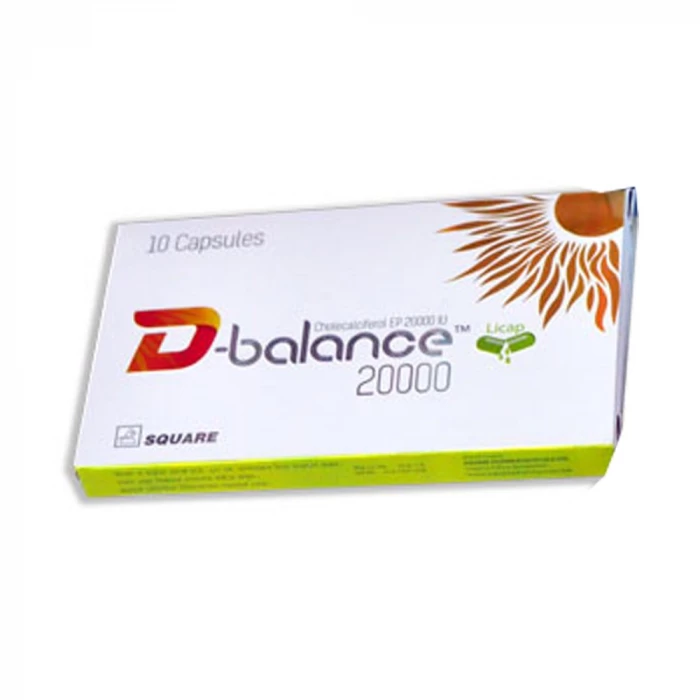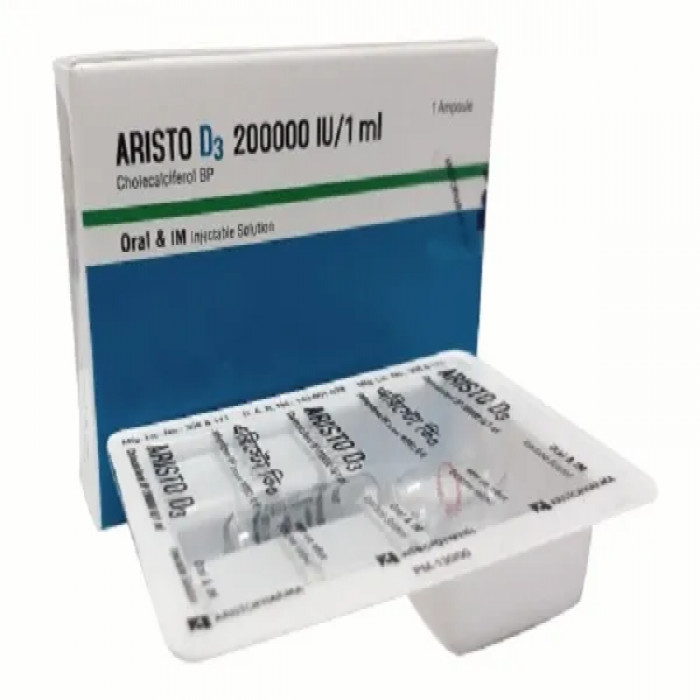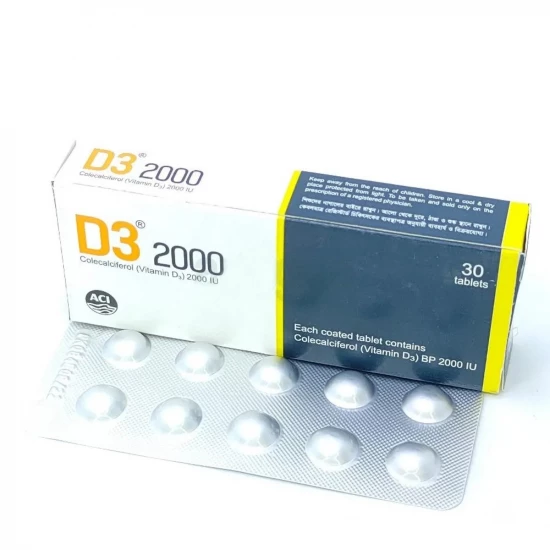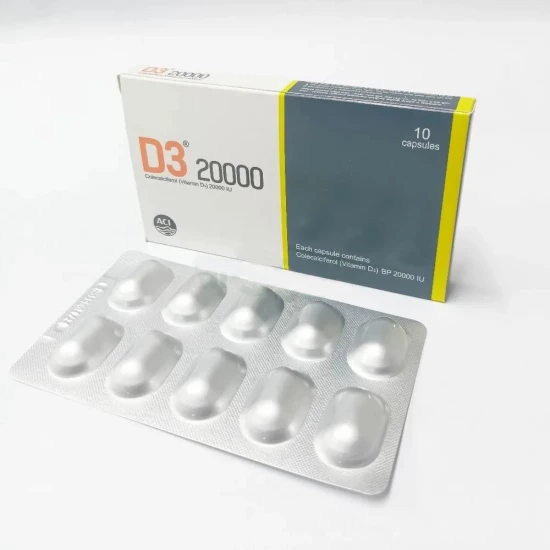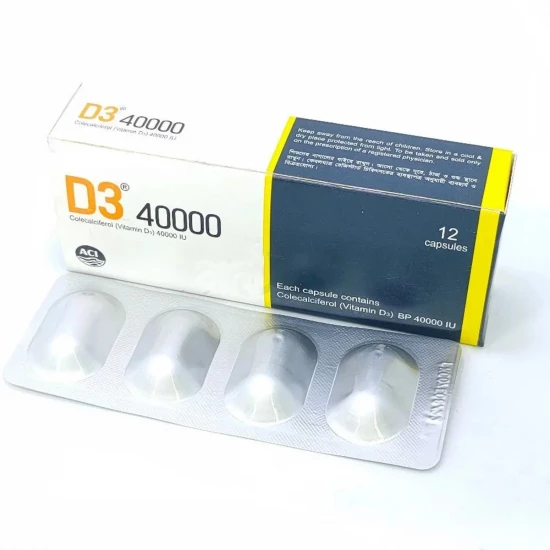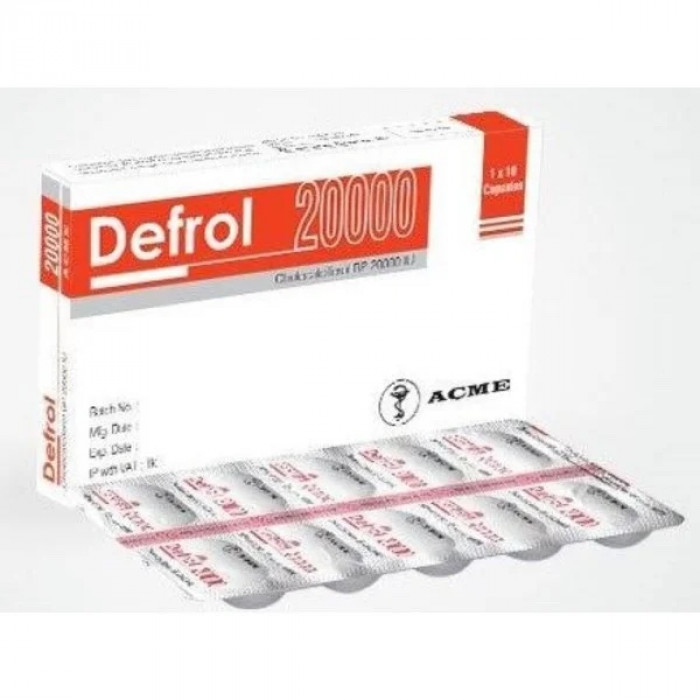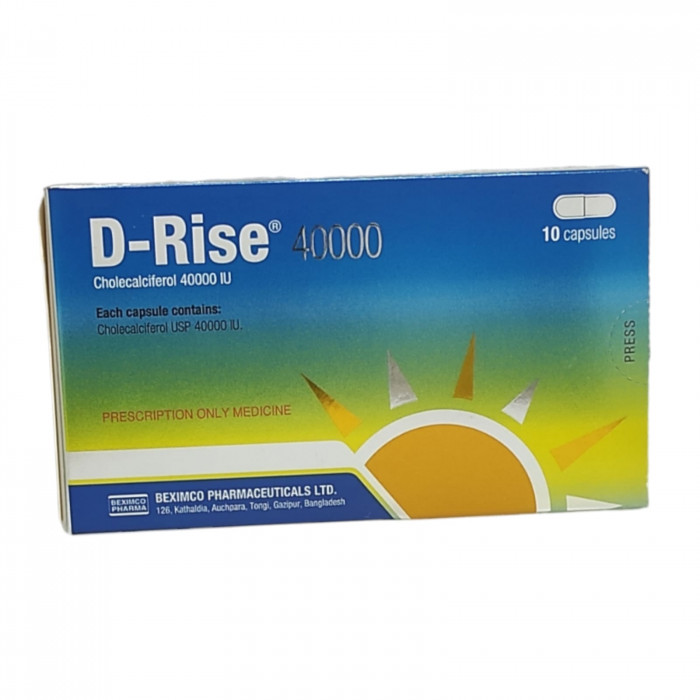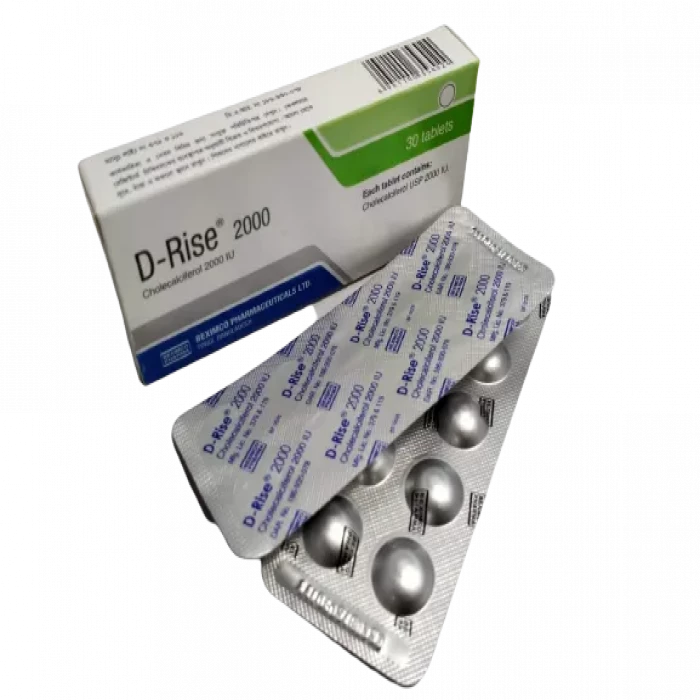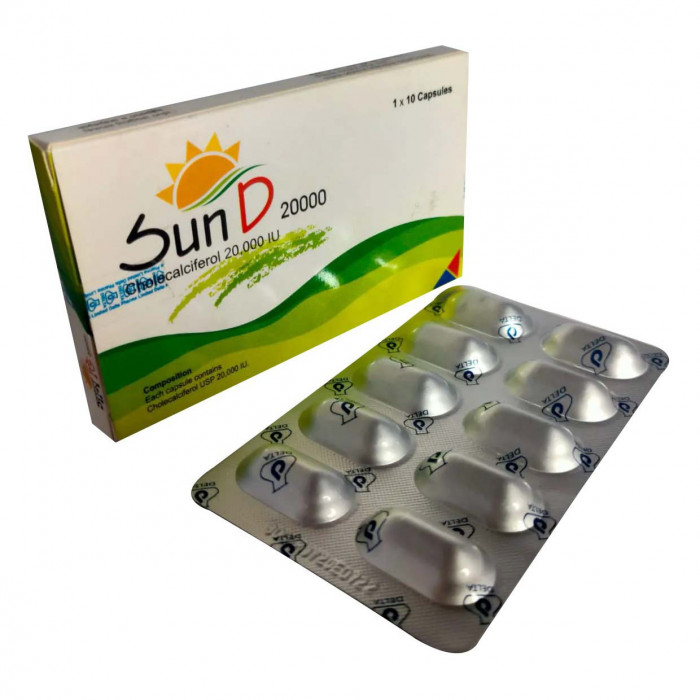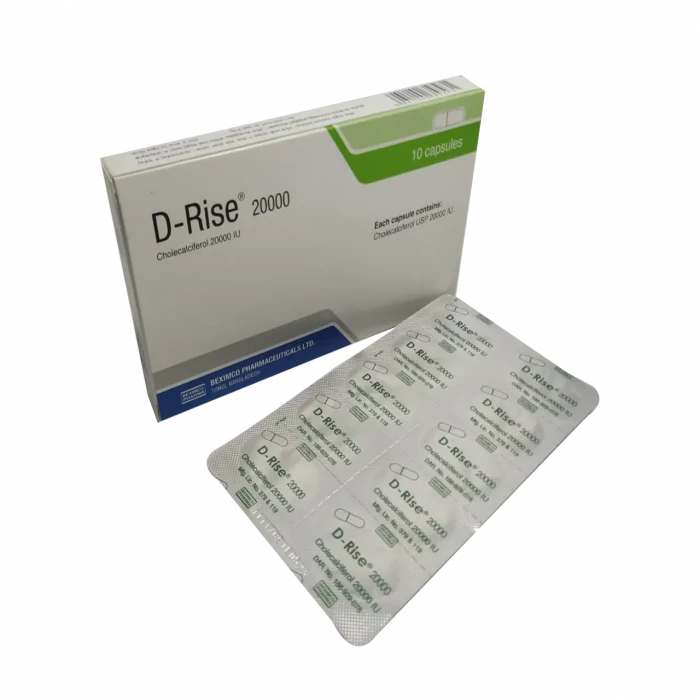
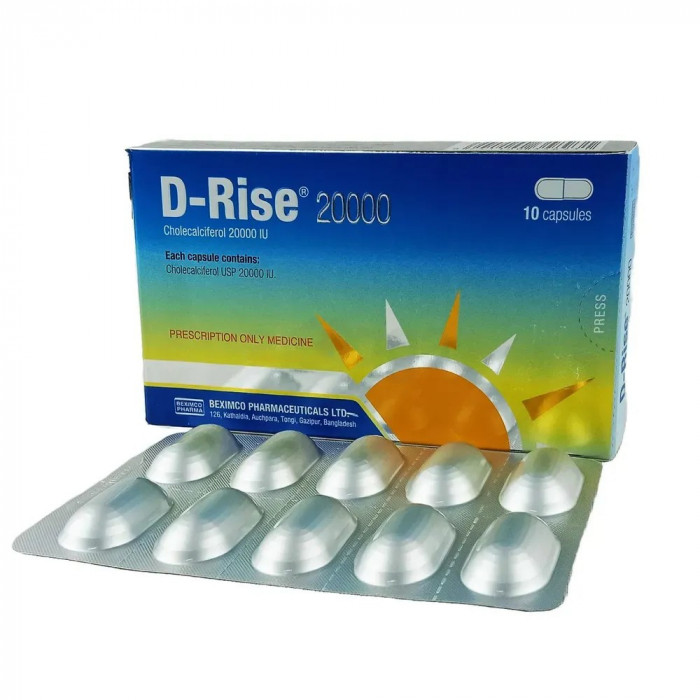
✔ 100% Authentic Product
👁️ Currently Viewing 4753
D-Rise 20000IU 1 Strip
- Dietary supplement containing Colecalciferol (Vitamin D3)
- Helps in calcium and phosphorus absorption and reabsorption for optimal bone growth and density
- Prevents and treats Vitamin D3 insufficiency
- May improve insulin levels in type 2 diabetes patients
- Reduces the risk of certain cancers (breast, colorectal)
- Easy to consume capsule form
- Suitable for adults and children aged 12 years and above
- Recommended dosages for treatment, prevention, and as an addition to specific therapy for osteoporosis
- Caution advised in patients with compromised renal function
- Store below 30°C, away from light and moisture, and out of children's reach.
Discount
Price: ৳ 190
MRP:
৳
200
5%
Off

100% Genuine Products, Guaranteed

Safe & Secure Payments, Always

Fast, Secure & Efficient Delivery

Proper Packaging
 Cash on Delivery - All over Bangladesh
Cash on Delivery - All over Bangladesh Regular Delivery - 12-24 Hours, Dhaka City* Charge Tk.39-59
Regular Delivery - 12-24 Hours, Dhaka City* Charge Tk.39-59 Regular Delivery - 24-48 Hours, Other Cities* Charge Tk.99-110
Regular Delivery - 24-48 Hours, Other Cities* Charge Tk.99-110
 ফ্রি ডেলিভারিঃ - ৯৯৯ টাকা+ অর্ডারে, ঢাকা
শহরে
ফ্রি ডেলিভারিঃ - ৯৯৯ টাকা+ অর্ডারে, ঢাকা
শহরে ফ্রি ডেলিভারিঃ - ২৯৯৯ টাকা+ অর্ডারে, ঢাকার
বাহিরে
ফ্রি ডেলিভারিঃ - ২৯৯৯ টাকা+ অর্ডারে, ঢাকার
বাহিরে
100% Genuine Products, Guaranteed
Safe & Secure Payments, Always
Fast, Secure & Efficient Delivery
Proper Packaging
 Cash on Delivery - All over Bangladesh
Cash on Delivery - All over Bangladesh Regular Delivery - 12-24 Hours, Dhaka City* Charge Tk.39-59
Regular Delivery - 12-24 Hours, Dhaka City* Charge Tk.39-59 Regular Delivery - 24-48 Hours, Other Cities* Charge Tk.99-110
Regular Delivery - 24-48 Hours, Other Cities* Charge Tk.99-110 ফ্রি ডেলিভারিঃ - ৯৯৯ টাকা+ অর্ডারে, ঢাকা
শহরে
ফ্রি ডেলিভারিঃ - ৯৯৯ টাকা+ অর্ডারে, ঢাকা
শহরে ফ্রি ডেলিভারিঃ - ২৯৯৯ টাকা+ অর্ডারে, ঢাকার
বাহিরে
ফ্রি ডেলিভারিঃ - ২৯৯৯ টাকা+ অর্ডারে, ঢাকার
বাহিরে
✅ Description:
D-Rise 20000 is a dietary supplement that contains Colecalciferol, also known as Vitamin D3, which helps in calcium and phosphorus absorption, essential for maintaining optimal bone growth and density. It also aids in the prevention and treatment of Vitamin D3 insufficiency, type 2 diabetes, and reducing the risk of certain cancers. D-Rise 20000 comes in capsule form for easy consumption and is suitable for adults and children aged 12 years and above.
✔️ Indication of D-Rise 20000IU
Vitamin D3 insufficiency can be treated and prevented with D-Rise 20000. In patients with vitamin D3 deficiency, it can also be used as a supplement to a particular osteoporosis treatment.
✔️ Pharmacology
Colecalciferol (Vitamin D3) aids in calcium and phosphorus absorption and reabsorption. Vitamin D3 is required for optimal bone growth and density maintenance. It also helps type 2 diabetes patients maintain optimal insulin levels by reducing the severity of bacterial infection, improving lung function, reducing the risk of cancer (breast, colorectal), and preventing cancer (breast, colorectal).
✔️ Dosage & Administration of D-Rise 20000IU
For capsule: Adults:
- Treatment of Vitamin D3 deficiency: 40000 IU once weekly for 7 weeks. Doses for maintenance therapy are 1400-2000 IU/day. To confirm the target level of 25 hydroxyvitamin D, measurement of it should be determined 3-4 months after initiating the maintenance therapy.
- Prevention of Vitamin D3 deficiency: 20000 IU every 4 weeks. Higher doses may be required in certain situations.
- Addition to specific therapy for osteoporosis: 20000 IU once a month.
For capsule: Children (12-18 years):
- Treatment of Vitamin D3 deficiency: 20000 IU once every 2 weeks for 6 weeks.
- Prevention of Vitamin D3 deficiency: 20000 IU every 6 weeks.
✔️ Interaction
Phenytoin, barbiturates, glucocorticoids, certain laxatives (such as liquid paraffin), actinomycin, and imidazole antifungal medicines are all affected.
✔️ Contraindications
It's not recommended for people who have a history of Vitamin D3 hypersensitivity.
✔️ Side Effects
Hypercalcaemia, hypercalciuria, skin rash, pruritus, urticaria, nausea, and abdominal pain are the most common adverse effects.
✔️ Pregnancy & Lactation
Studies have shown that dosages up to 4000 IU are safe to use during pregnancy. The recommended daily consumption for pregnant women is 400 IU; however, if the woman is Vitamin D3 deficient, a larger amount may be necessary. Women should follow their doctor's advice during pregnancy because their needs may change depending on the severity of their disease and how well they respond to therapy.
Breast milk excretes vitamin D3 and its metabolites. Overdose in nursing mothers' newborns has not been reported; however, when providing more vitamin D3 to a breastfed child, the practitioner should take into account the dose of any additional vitamin D3 given to the mother.
✔️ Precautions & Warnings
In patients with compromised renal function, it should be used with caution.
✔️ Storage Conditions
Keep the temperature below 30°C and keep it away from light and moisture. Keep out of children's reach.
⚠️Disclaimer:
At ePharma, we’re committed to providing accurate and accessible health information. However, all content is intended for informational purposes only and should not replace medical advice from a qualified physician. Please consult your healthcare provider for personalized guidance. We aim to support, not substitute, the doctor-patient relationship.




